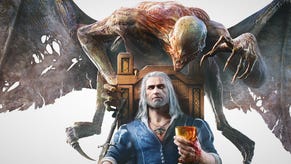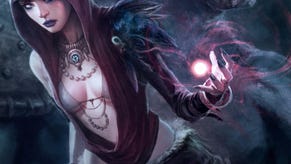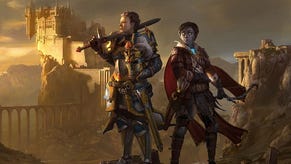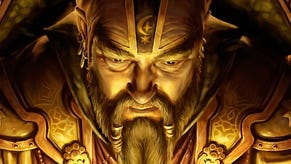Neverwinter Nights
Review - we dig through the hype to find out if Bioware's latest effort is worth your hard earned Euros
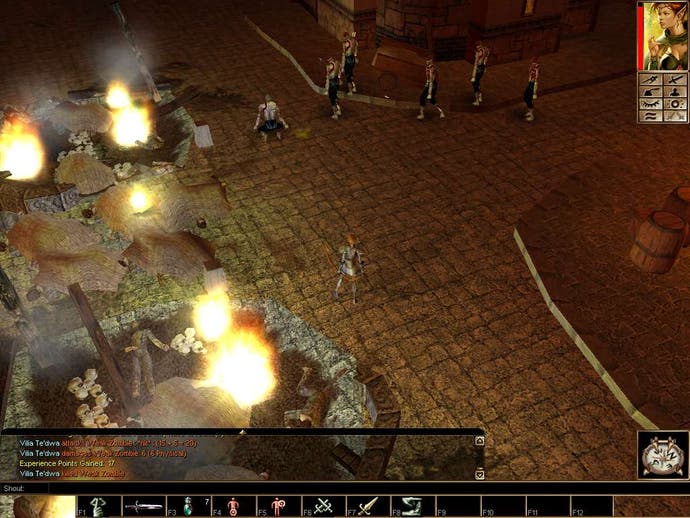
All Good Things...
Neverwinter Nights has been under construction for what seems like an eternity, but after countless delays and a deluge of hype, it's finally arrived. Obviously it was never going to be able to live up to gamers' high expectations (nothing short of the Second Coming could have done), so the key questions are just how disappointing is it, and is it still worth buying? And the answers are fairly, and absolutely.
At the heart of the game is an epic single player campaign. Bioware say that it offers over sixty hours of gameplay, and given that we've been slogging our way through it for the last few weeks and have only just finished the first of its four chapters, it seems that if anything that might be a conservative estimate. As the game begins the city of Neverwinter is quarantined thanks to a mysterious plague, and things soon go from bad to worse. Four dangerous magical creatures have been brought to the city in the search for a cure, but an attack by unknown assailants sees them released to run wild in the city streets. By the time you are ordered to track them down they are already raising mischief in the city's various districts. Undead are running around the Beggar's quarter, violent criminals have taken over the city prison, the docks are overrun by thieves and pirates, and a secretive wizard is under suspicion in the posh end of town.
It's a bewildering opening to the game, and leaves you free to head out from the city centre and complete the quests in any order you want to. The bad news is that the pacing is glacially slow, and it takes forever to actually progress through the storyline and develop your character. Bioware seem to have fallen for the old fallacy that bigger is better, and as such most of your first week or two is spent running around Neverwinter slaughtering vast numbers of zombies and plague-ridden thugs. It's a bit dull and repetitive at times, and more reminiscent of Icewind Dale than Baldur's Gate. There is a plot under there, but you spend more time killing things, picking locks and disarming traps than actually role-playing or adventuring.
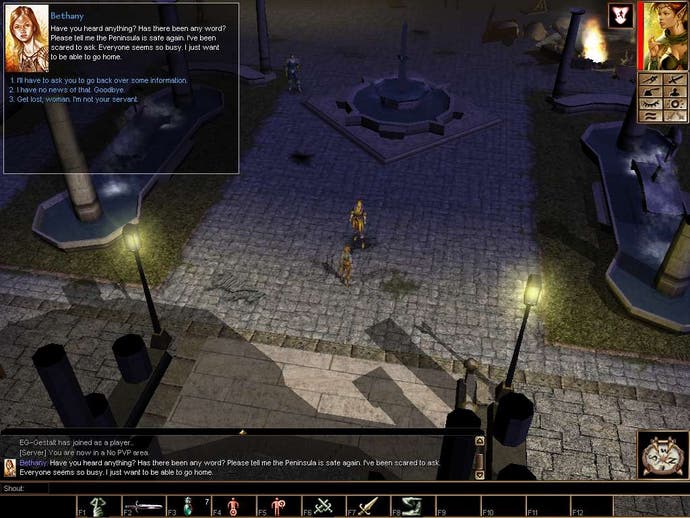
What Are You Doing?!?
This would be fine if the game had an interesting and varied combat system, and the use of the more flexible character development system introduced by the AD&D 3rd Edition rules should provide just this. You can now multi-class more easily, and skills and feats aren't limited to a particular career choice; you can, for example, create a wizard who can wear armour and pick locks.
The problem is that Neverwinter Nights has no party dynamic - you are limited to your main character and one follower, which may be a hired henchman, a magical familiar or a creature companion. This may come as something of a shock to fans of Bioware's previous games, and it was certainly a huge disappointment for me. In the Baldur's Gate series you have a party of half a dozen varied characters at your disposal, usually including a thief, a mage and a priest as well as warriors, giving you a wide range of spells and abilities to take advantage of. In Neverwinter Nights you only have two characters at a time, one of which really needs to be a dedicated close-range fighter to stop the hordes of evil doers from overwhelming you, and one of which needs to be proficient at picking locks and disarming the many traps you'll stumble across. Even with the increased freedom you have in developing your character, this doesn't leave players with much room for manoeuvre, especially in the early stages of the game. And given the incredible length and plodding pace of the main campaign, there's little encouragement to come back and play your way through the whole thing again with a different character type.
To make matters worse, you have absolutely no direct control over your sidekick. All you can do is give a few general orders like "follow me" and "stand your ground", and set basic behaviour such as how close they stay to you, options which your henchman often seems to completely ignore anyway. There's no way of exchanging items between your inventories, which means that your lead character has to be pretty burly if you plan to lug much loot around, further limiting your choices. The one exception is that you can give your sidekick a potion, but they always quaff it immediately, whether they need to or not. Elsewhere the AI varies from reasonable to pitiful. For example, rogues will sometimes run through a gaggle of enemies to disarm a trap at the other end of the room, blissfully ignorant of the battle going on right behind them. Other bizarre behaviour is down to scripting rather than AI, like the way rescued NPCs merrily walk past enemies on their way out of an area without either side batting an eyelid, or your sidekick's habit of instantly teleporting back to your side if you get too far ahead of them (although annoyingly they won't do this if they get stuck on a piece of scenery, thankfully a fairly rare occurence). And don't get me started on the voice acting, which is monumentally repetitive. If I hear the words "oh, I can pick that open easy" one more time I'm going to have to cleave someone's head in twain.
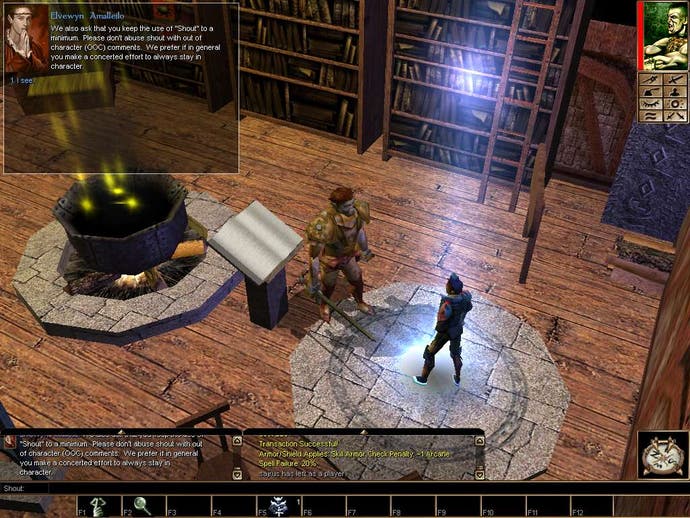
Anarchy In The UK
Of course, the single player campaign is really just an entrée - the main course is the online community. In multiplayer you can actually group together into parties of more than two characters with other players, sharing experience between you as you work your way through the campaign or one of the many third party add-on modules already available.
Multiplayer is, as you would expect, a varied experience. Servers range from serious role-playing zones, where speaking out of character or using the shout command is frowned upon, to lawless hack and slash action. The first server I joined was in total anarchy - as I spawned into the game a group of players were busy assaulting Aribeth, one of the key campaign characters, and a quick trip out into the streets beyond revealed that they had already massacred the entire town guard, corpses littering the cobble stones for miles around. It's also a little worrying that one of the most popular servers in the world is titled "Free XP / Gold / Items". By contrast though, on another server you might find yourself chatting with fellow adventurers in a pub, playing games in a working casino, or taking part in an epic quest.
If you can't find a server to your tastes and you have a few like-minded friends who can be convinced to buy the game, you can always run your own. One or more players can even act as the Dungeon Master, moderating the game and adding a little extra atmosphere to spice things up. Obviously you need a broadband connection to make the most of multiplayer, especially if you want to play custom modules (which are auto-downloaded from the server where appropriate), but with the right hardware and enough bandwidth you can host anything up to 64 players on a single machine.
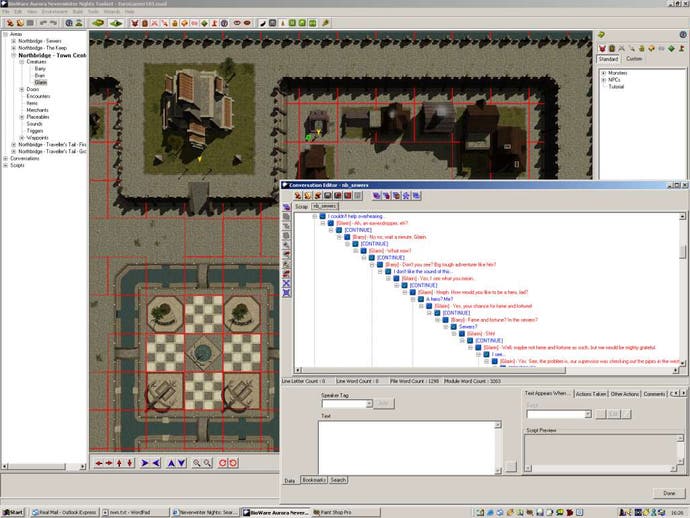
Paint By Numbers
I say "on a single machine", because it is theoretically possible to link multiple servers together, allowing players to hop from one area to another in a more-or-less seamless fashion. Not many people have attempted this yet, but it does work, and no doubt it won't be long before large scale persistent worlds start to spring up.
This kind of customisation is supported by the easy-to-use editing suite which comes with the game. Although the more arcane arts of scripting take some getting used to, almost anybody should be able to throw together a basic dungeon crawl, with plenty of point-and-click "wizards" to help automate common activies like creating new areas, adding monsters and so forth. If you find yourself out of your depth, a reasonably helpful tutorial module is available from the game's website, and the official forums are a gold mine of information, suggestions and sample scripts. Your mileage may vary, but I've actually had more fun messing around with the toolkit than playing the game itself.
Modules are fairly compact and tend to compress well, making them easy to distribute, but it's not all good news. The main problem is that the way the game is structured is very much built around serving the default campaign rather than allowing maximum flexibility for mod makers. For example, each area may only use a single preset theme (city exterior, forest, dungeon etc) with its own unique buildings and terrain features, and there's no way to mix and match these in a single zone. So if you want to place a big park in the middle of your town, you're out of luck. You can combine or replace the default tilesets, and even add entirely new monsters and items with a little modelling know-how and some artistic talent, but this is fairly complex and involves the use of "hak packs". These are currently not auto-downloaded, so they're no use for most multiplayer modules. You can only use one pack with each module at the moment as well, so if you want to include multiple new monsters, items and terrain tile sets you'll have to combine them by hand into one big hak pack which everyone will need to download for your module to work, even if they already have all the modifications you're using as seperate files. It's a clumsy system that shows little foresight, and all we can say is that we hope it will be fixed at some point.
Conclusion
Out of the box, Neverwinter Nights is something of a mixed bag. The single player campaign is, if anything, too long, and focuses more on continuous combat than actual role-playing. The lack of any support for parties in the single player mode is also disappointing, and makes the game far less involving than it should be. Multiplayer is a more entertaining experience, but you may have to explore several servers before you find one that feels like home.
What really lifts the game above the crowd though is the mod support, which literally opens up a whole new world. Persistent online realms, linked servers, new quests, monsters and equipment are all possible, although the way the game handles these could have been better thought out. Already the internet is awash with add-ons, some of which are very good, and the future looks bright.
If you're a role-playing fan and don't mind downloading additional content, Neverwinter Nights is something of a no-brainer. It might not be the best role-playing game ever (not by a long shot), but it is arguably the most promising.
